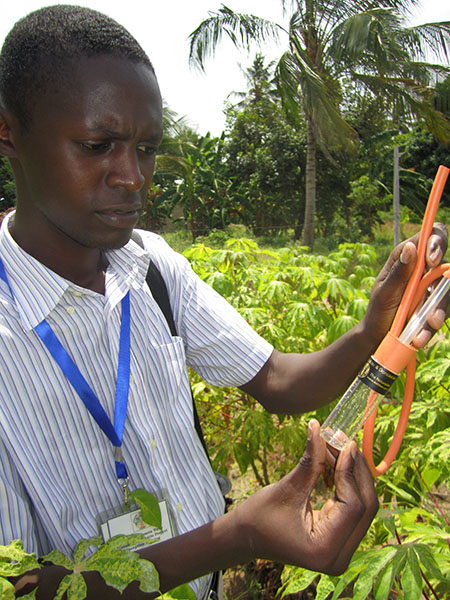
The Natural Resources Institute's Biodiversity and Molecular Biology Research Group have received a ~£500,000 grant from the Bill & Melinda Gates Foundation to develop specific research tools for African cassava virologists and breeders that will assist their research and development work to improve cassava productivity and sustainability in sub-Saharan Africa.
Cassava is an essential food-security crop, but its production is greatly limited by virus diseases transmitted by 'super-abundant' populations of the whitefly vector, Bemisia tabaci.
Innovative whitefly management technologies are needed, and to develop these, a greater understanding of the mechanisms generating the large populations of the cassava whitefly is required.
The project is expected to deliver significant results including effective diagnostic markers to identify specific gene sequences only present in the 'super-abundant' cassava whitefly populations from East Africa. This is an important stepping stone in developing methods of control.
Two East African researchers will receive in-depth molecular biology training in specific techniques, thus building the capacity of in-country experts to tackle cassava viruses and their whitefly vectors.
Dr Sue Seal, Head of the Biodiversity and Molecular Biology Research Group, who leads the project, says: "The diagnostic tests and research tools that we will be developing in this project will have direct impact through a close collaboration with African cassava scientists Drs Joseph Ndunguru, Peter Sseruwagi and Fred Tairo, at Mikocheni Agricultural Research Institute (MARI) in Tanzania, who are the leaders of regional research projects tackling these devastating viruses and their whitefly vectors".
Photo caption: Mr Habibu Mugerwa collects whiteflies from a virus-infected cassava field in Tanzania for his PhD studies supervised at NRI by Dr Susan Seal and Prof John Colvin

